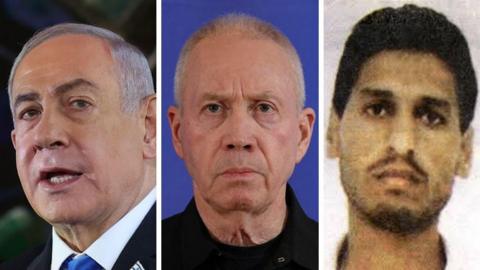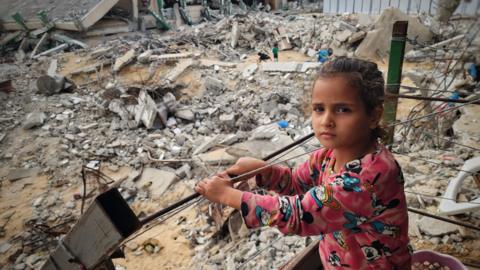The impact of the warrants announced by the ICC will depend on whether the court's 124 member states - which do not include Israel or its ally, the US - decide to enforce them or not.
But officials from the EU and across Europe have all made statements standing by the Court.
EU foreign policy chief Josep Borrell said "the decision of the court has to be respected and implemented". The Dutch foreign minister said "we will act on the arrest warrants" and Italy said it would support the Court, which should "play a legal role and not a political role".
The German chancellor's spokesman said Berlin had "unique relations with a great responsibility for Israel" and further action would only be taken when a stay by Netanyahu and Gallant was "foreseeable".
Two of Israel's closest allies in the EU rejected the Court's decision. Hungarian Prime Minister Viktor Orban said he would invite Netanyahu to visit and "guarantee him that if he comes, the ICC's ruling will have no effect in Hungary".
Czech Prime Minister Petr Fiala said the court had made "an unfortunate decision" in equating "the elected representatives of a democratic state with the leaders of an Islamist terrorist organisation”.
South Africa, which has brought a case against Israel at the International Court of Justice accusing it of genocide, welcomed the decision, and urged "all state parties to act in accordance with their obligations in the Rome Statute".
South Africa failed to honour an ICC arrest warrant against the Sudanese leader Omar al-Bashir when he visited the country in June 2015.
The ICC prosecutor's case against Netanyahu, Gallant and Deif stems from 7 October 2023, when Hamas gunmen attacked Israel, killing about 1,200 people and taking 251 others back to Gaza as hostages.
Israel responded by launching a military campaign to eliminate Hamas, during which at least 44,000 people have been killed in Gaza, according to the territory's Hamas-run health ministry.
For Deif, an ICC pre-trial chamber found reasonable grounds to believe he was "responsible for the crimes against humanity of murder; extermination; torture; and rape and other form of sexual violence; as well as the war crimes of murder, cruel treatment, torture; taking hostages; outrages upon personal dignity; and rape and other form of sexual violence".
It also said there were reasonable grounds to believe the crimes against humanity were "part of a widespread and systematic attack directed by Hamas and other armed groups against the civilian population of Israel".
For Netanyahu and Gallant, who was replaced as defence minister earlier this month, the chamber found reasonable grounds to believe that they "each bear criminal responsibility for the following crimes as co-perpetrators for committing the acts jointly with others: the war crime of starvation as a method of warfare; and the crimes against humanity of murder, persecution, and other inhumane acts".
It also found reasonable grounds to believe that "each bear criminal responsibility as civilian superiors for the war crime of intentionally directing an attack against the civilian population".


